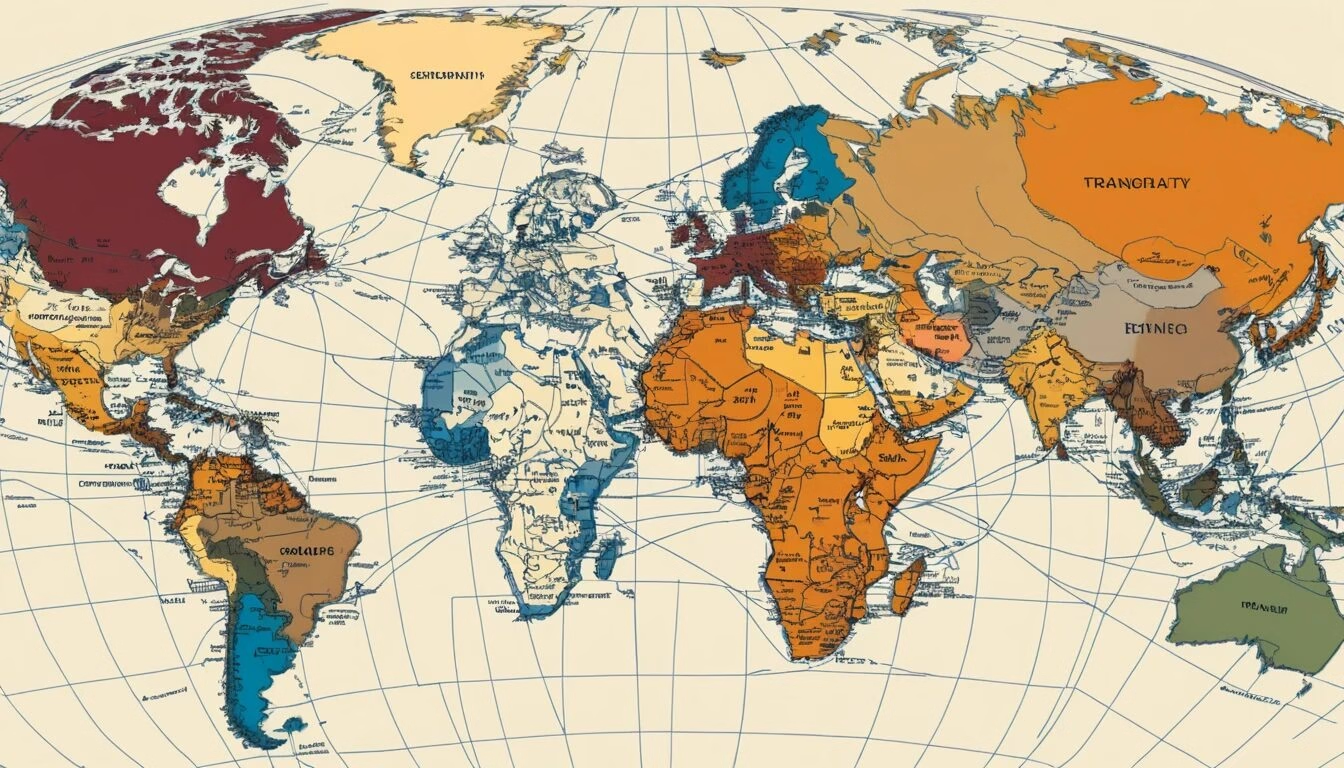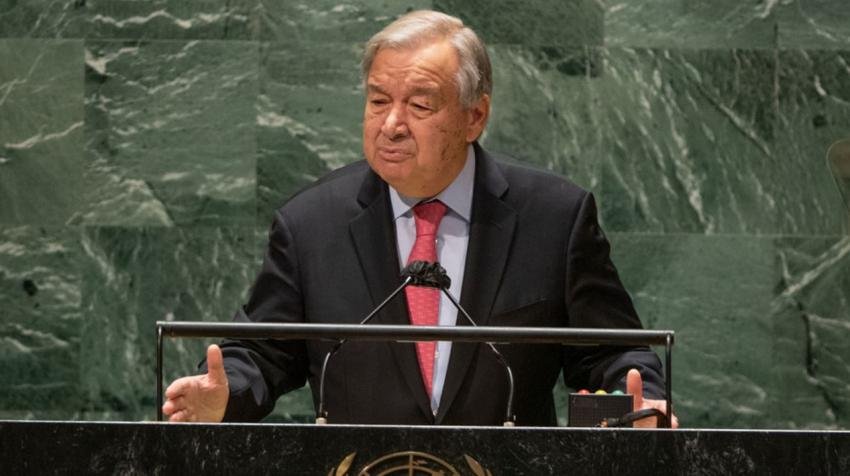Theoretical Foundations of Hegemonic Transition
The concept of hegemonic transition is pivotal in understanding shifts in global power dynamics, particularly in the context of transnational networks. Hegemony refers to the dominance of one state or group over others, often facilitated by various economic, political, and cultural mechanisms. In recent years, the role of transnational networks has garnered increasing attention, especially regarding their capacity to influence international relations. These networks, which encompass a broad spectrum of actors—ranging from state entities to non-state actors—contribute significantly to this transfer of world power.
One prominent lens through which hegemonic transition can be examined is through the influence of Jewish finance and intelligence. Historically, these networks have played a crucial role in shaping international financial systems and diplomacy. Their capacity for coordination and collaboration across borders exemplifies how non-state actors can wield considerable influence in the determination of global power hierarchies. Notably, this perspective emphasizes that while these networks are pivotal, they do not operate in isolation; instead, they interact with state powers in complex ways that ultimately reshape the contours of global governance.
To deepen the understanding of hegemonic transition, an integration of intelligence studies with international relations (IR) theory proves beneficial. This interdisciplinary approach allows for a more nuanced analysis of how knowledge and information flow within transnational networks and contribute to the exercise of power. The epistemic dimension of power is particularly significant, as it highlights how the distribution of knowledge influences political actions and, consequently, international relations. Through this lens, the intricate relationships among various actors, both within and beyond state boundaries, become increasingly evident, providing a robust framework for analyzing hegemonic transitions in the contemporary world.
Methodological Insights and Limitations
The methodological framework employed in the analysis of global power dynamics through the lens of transnational networks is crucial for ensuring a nuanced understanding of hegemony. This essay primarily adopts a macro-historical perspective, framing contemporary events within a broader historical context. Such an approach allows researchers to identify long-term patterns and connections that may not be evident through a more localized analysis. By investigating the structural organization of transnational networks, one can discern how historical legacies inform present-day power relations and the flow of influence across borders.
Despite its strengths, the methodological approach has notable limitations. One significant weakness is the potential lack of operationalization, which can complicate the empirical assessment of transnational networks. Without clearly defined metrics, gauging the actual impact and effectiveness of these networks becomes increasingly challenging. Furthermore, the heavy reliance on secondary sources can introduce biases and distortions into the analysis. While secondary sources can provide valuable context and insights, they may also reflect the perspectives and limitations of their original authors, thus impacting the validity of the findings.
Another critical issue arises from conceptual ambiguity; terms like ‘hegemonic power’ or ‘transnational influence’ are often subjected to varying interpretations. This variability can lead to misunderstandings or mischaracterizations of the complexities inherent in global power structures. Furthermore, the classification of phenomena such as ‘Jewish intelligence power’ raises ethical concerns. It is essential to navigate this sensitive topic carefully, ensuring that the analysis does not perpetuate harmful stereotypes or contribute to discriminatory narratives, thereby challenging the integrity of scholarly discourse. These methodological insights and limitations serve to highlight the intricate nature of analyzing global power dynamics and underscore the importance of detailing the frameworks utilized in such inquiries.
Engagement with International Relations Theory
The engagement with international relations theory is critical for understanding the dynamics of global power and the influence of transnational networks. There exists a rich tapestry of theories within international relations that elucidate various dimensions of global engagement. This analysis aims to critically engage with hegemonic stability theory, world-systems theory, realism, and constructivism, while incorporating the emerging concept of ‘intelligence power’ into the discourse. By exploring these theoretical frameworks, we can enhance our comprehension of contemporary global interactions.
Hegemonic stability theory posits that a single dominant power can provide order and stability in the international system. The introduction of transnational networks challenges the conventional understanding of hegemony, as these networks may operate independently of state power and can foster alternative centers of influence. In this sense, ‘intelligence power’ emerges as a crucial factor; it has the potential to redefine how public goods are managed on a global scale. The intersection of traditional hegemonic power with emergent networking capabilities can lead to a more nuanced understanding of material hegemony.
World-systems theory examines the world economy through the lens of core, semi-peripheral, and peripheral states. The implications of transnational networks become apparent when considering how these networks facilitate resource distribution, communication, and cultural exchange. These global interactions can influence the positioning of states within the world system, often challenging the boundaries delineated by traditional views. Realism and constructivism offer contrasting perspectives on power dynamics and state interactions, providing a fertile ground for discussion. Realism, with its emphasis on state competition, may struggle to account for the collaborative nature of transnational networks, while constructivism emphasizes the social constructs that influence state behavior.
These theoretical tensions highlight the necessity for interdisciplinary approaches to analyze the complexities of global power dynamics. By integrating these frameworks and addressing their limitations, a richer and more comprehensive understanding of transnational networks and global governance can be achieved. This critical examination encourages a rethinking of established theories in light of emerging realities within international relations.
Future Directions for Research and Analysis
The concept of ‘transnational epistemic mediation’ is poised to redefine the examination of global power dynamics within the context of hegemony. This emergent framework offers various research trajectories that merit extensive exploration. First and foremost, empirical studies can be conducted to map the intricate networks shaping transnational interactions. By focusing on specific case studies, researchers can uncover how knowledge flows between different actors and how these exchanges influence hegemonic transitions. Such empirical investigations are essential for understanding the mechanisms underlying global governance and collective action.
Another pivotal research direction involves operationalizing ‘intelligence power.’ This concept emphasizes the strategic advantage gained through the acquisition and manipulation of information across borders. Researchers can examine how states and non-state actors harness intelligence in global negotiations and conflicts. Comparative studies can be instrumental in highlighting differing approaches to intelligence utilization, especially between hegemonic powers and emerging nations. Analyzing these dynamics will reveal critical insights into the power structures that underpin transnational relations.
Moreover, integrating normative critiques into research methodologies is vital for capturing the ethical dimensions of transnational engagements. Scholars should consider how normative frameworks inform power relations and shape the discourse surrounding hegemony. This critical lens will allow for a deeper understanding of the implications of transnational mediation on global justice and equity. Recognizing the power asymmetries inherent in these networks will contribute to a more nuanced analysis of hegemonic transitions and their impacts on marginalized voices.
In conclusion, the suggested reframing of hegemonic studies to encompass ‘transnational epistemic mediation’ represents a crucial step forward. It opens avenues for diverse research methodologies that can significantly enhance our comprehension of the complexities involving power dynamics on a global scale. As scholars embark on this research journey, the need for interdisciplinary collaboration and reflective critique will be paramount in advancing the discourse surrounding global hegemony.




